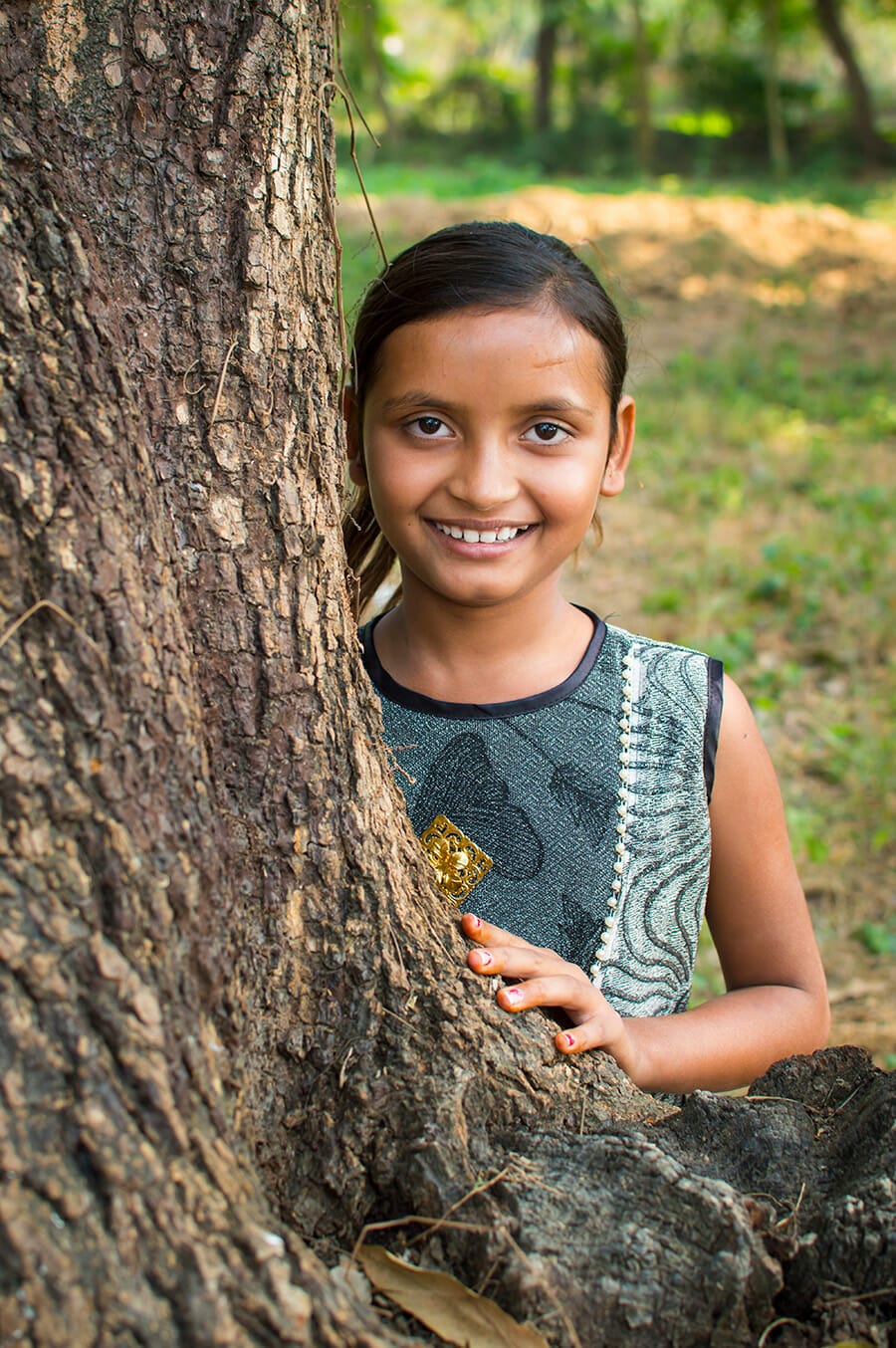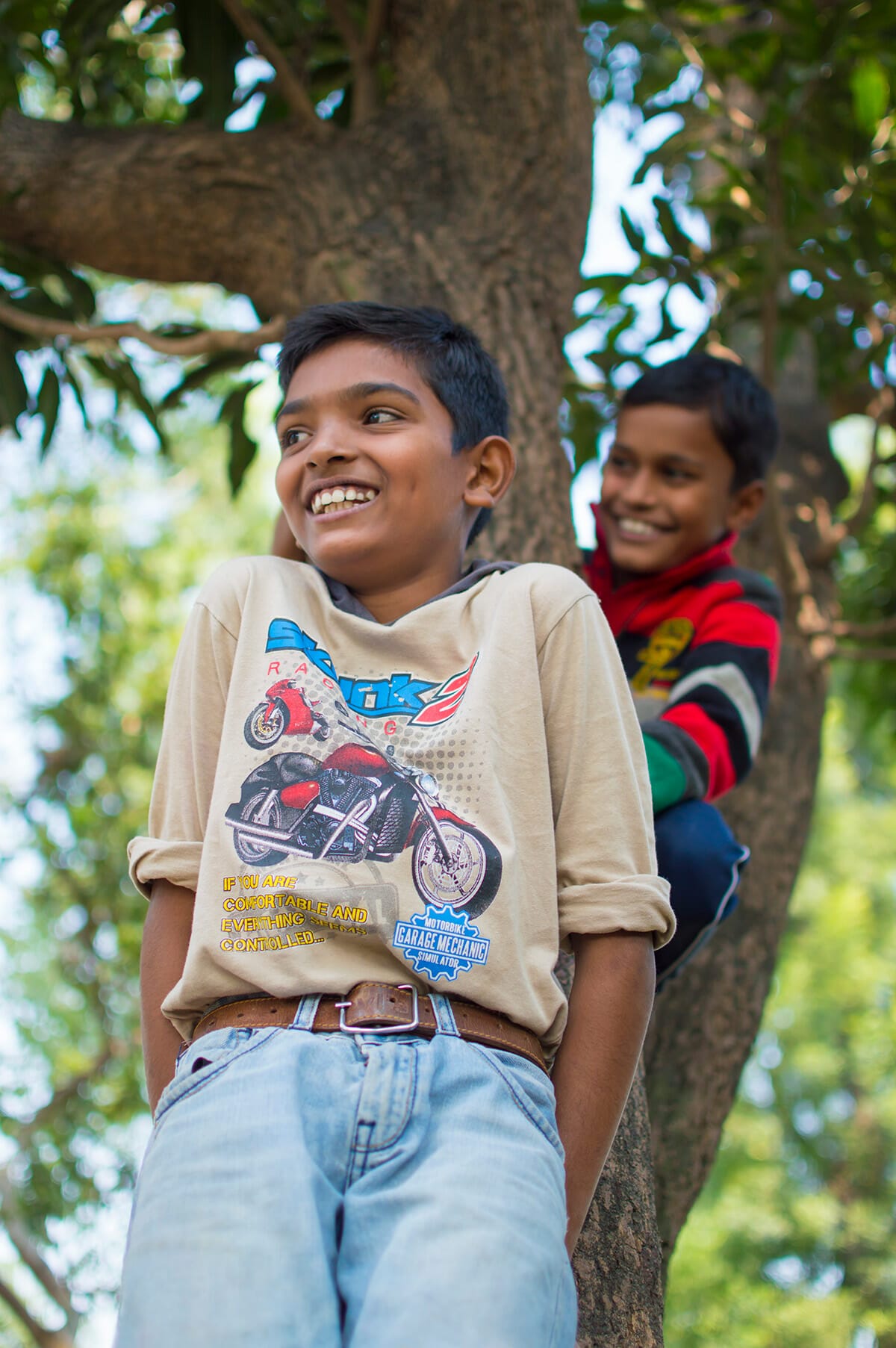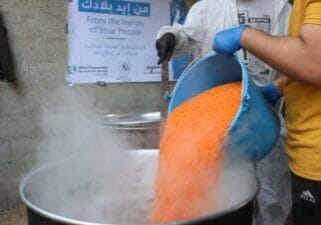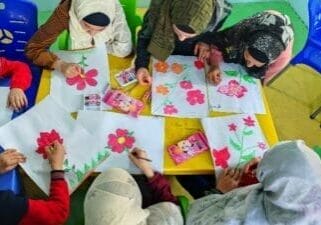News > Blog
Right to Care: Family-Centered Approaches for Vulnerable Children and Adolescents
Published 11/18/2022 by Global Communities

By Betty Adera
The impact of disasters, complexities of humanitarian crises and ongoing effects of climate change pose major threats to the lives of children. These challenges impact the most vulnerable among us and expose them to health, water and food insecurity; exploitation and sexual violence; deprivation and neglect. Long-standing, systemic human and child rights violations are exacerbated for children from marginalized or minority groups, or those with disabilities — and stark inequalities exist.
Of the estimated 2.3 billion children on this planet, 263 million of them are out of school1 and 45 million experience severe malnutrition, which takes the lives of more children than AIDS, malaria and tuberculosis combined.2 Children from all walks of life experience, witness and endure violence, which can have a long-term effect on their health and well-being.
These challenges remain, despite the existence of the Convention on the Rights of the Child,3 the most widely ratified human rights treaty in history, and the Sustainable Development Goals (SDGs),4 a worldwide commitment to creating a better and more sustainable future for all. Sadly, we are at risk of failure.
With these statistics in mind, when we say that children are the future, what does that mean? More importantly, what can be done and by whom to truly ensure the security of their futures?

While significant strides have been made to eradicate HIV/AIDS, children are still at the forefront of the epidemic. Out of an estimated 38 million people living with HIV worldwide in 2020, 2.78 million of them were children under 19 years of age.5 Each day in 2020, approximately 850 children were infected with HIV and approximately 330 children died from AIDS-related causes, mostly due to inadequate access to HIV prevention, care and treatment services. Of even greater concern, 2 out of 5 children living with HIV globally do not know their status, putting their immune systems and lives at risk. Just over 50% of those who are aware of their status are on antiretroviral treatment (ART)6, which reduces mortality rates and improves the quality of life for those living with HIV. While these statistics shed light on a global front, differences do exist within and between continents, countries and regions, and among genders, cultures and socio-economic statuses. Some of these differences exist because of barriers in accessing care and services, including discrimination and inequalities.
No matter what circumstance has created vulnerability for a child, whether it is war, food insecurity, disease or the effects of climate change, that child has the right to caring environments that are responsive to their unique needs and circumstances. As an organization, Global Communities is committed to working with governments, local partners, civil society and most importantly, children and their families, to provide essential quality services coupled with protective environments that youth need to stay healthy and safe throughout their lifetime. Our programs support the reduction of HIV among adolescent girls, provide psychosocial support for youth in conflict-affected regions and support youth in continuing their education so that they reach their fullest potential. We prioritize family-centered approaches in response to the unique needs of children that are tailored to each context while targeting those who are hardest to reach and furthest from help.


Photos: Brijesh Kumar Govind Rao/PCI India
Family-centered practice is based upon the belief that the best way to meet a person’s needs is within their families and that the most effective way to ensure safety, permanency and well-being is to provide services that engage, involve, strengthen and support families.
Strongly believing that families have the capacity to make decisions regarding the welfare of their children and act on them, Global Communities places an emphasis on the family and supports communities to work in partnership with parents, caregivers and other family members to create the best possible environments for children’s health, development and overall well-being.
These successes have been witnessed in countries around the world, from Zambia and India to Syria and Guatemala, through programs that address HIV prevention, treatment and care among children and adolescents; malaria control; newborn, child and adolescent health; child nutrition; integrated management of childhood illnesses; child protection; early childhood development; education; and psychosocial support, and across development and humanitarian contexts.

Our programs are tailored to meet the unique developmental needs of children and young people so they can reach their full potential and truly embrace a future where their rights are realized. Children deserve to be empowered to act as agents of their own change, set their own goals and act without fear of violence, retribution or exploitation.
As we celebrate this year’s Universal Children’s Day, we re-affirm our commitment to listen and to learn from our experiences while engaging with families and communities every day. We also want to continually evaluate how our work is contributing to global efforts that ensure environments are safe for children not only to survive in but to thrive in. There is no greater importance than considering and advocating for what needs to be done to sustainably empower families and communities to take care of and protect their own children, reflecting with emphasis on the promotion of the inherent rights of children. That is the only way of securing their futures.
Betty Adera is a Senior Technical Advisor for HIV/AIDS and Health at Global Communities.
[1] 263 Million Children and Youth Are Out of School | UNESCO UIS
[2] https://www.wfpusa.org/articles/what-you-need-to-know-about-child-malnutrition/
[3] Convention on the Rights of the Child | UNICEF
[4] THE 17 GOALS | Sustainable Development (un.org)https://sdgs.un.org/goals
[6] A child was infected with HIV every two minutes in 2020 – UNICEFhttps://www.unicef.org/press-releases/child-was-infected-hiv-every-two-minutes-2020-unicef


